EDUCATIONAL COMPLEX FOR TRIBALS GIRLS::
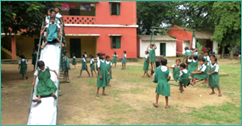 The Ministry of Tribal Affairs, Government of India, is supporting SEED in implementing a residential educational complex exclusively for tribal girls. This complex, known as SEED Kanyashram, is dedicated to the holistic development of its students through education. Along with formal literacy, activities such as yoga, sports, drawing, singing, dancing, debate competitions, and other creative events are integrated into the daily routine to help identify and nurture the inner talents of the girls. Established in 1998, the Kanyashram is located at Tandapalli village in Korukonda block of Malkangiri district, Odisha. At present, the institution provides primary education and residential facilities to 200 tribal girls up to Class VIII.
The Ministry of Tribal Affairs, Government of India, is supporting SEED in implementing a residential educational complex exclusively for tribal girls. This complex, known as SEED Kanyashram, is dedicated to the holistic development of its students through education. Along with formal literacy, activities such as yoga, sports, drawing, singing, dancing, debate competitions, and other creative events are integrated into the daily routine to help identify and nurture the inner talents of the girls. Established in 1998, the Kanyashram is located at Tandapalli village in Korukonda block of Malkangiri district, Odisha. At present, the institution provides primary education and residential facilities to 200 tribal girls up to Class VIII.
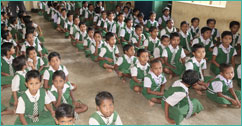 The school provides primary education along with residential facilities for tribal girls, with the aim of enhancing their access to quality learning and holistic development. SEED Kanyashram supports underprivileged tribal children by supplying essential educational materials such as textbooks, notebooks, pens, pencils, and paper. In addition, students are provided with uniforms, footwear, and personal care items including bath soap, laundry detergent, and toothpaste. To ensure academic progress, regular assessments on monthly, half-yearly, and annual examinations are conducted. Students are also supplied with the necessary learning resources to facilitate their studies and overall growth.
The school provides primary education along with residential facilities for tribal girls, with the aim of enhancing their access to quality learning and holistic development. SEED Kanyashram supports underprivileged tribal children by supplying essential educational materials such as textbooks, notebooks, pens, pencils, and paper. In addition, students are provided with uniforms, footwear, and personal care items including bath soap, laundry detergent, and toothpaste. To ensure academic progress, regular assessments on monthly, half-yearly, and annual examinations are conducted. Students are also supplied with the necessary learning resources to facilitate their studies and overall growth.
Throughout the year, SEED Kanyashram undertakes various developmental and extracurricular activities to promote the all-round growth of its students. On September 25, 2024, a special training session on origami paper crafts was organized, where the girls learned to create different types of flowers using colored paper. This activity encouraged creativity, skill development, and self-learning through practice, serving as an important life skill exercise.
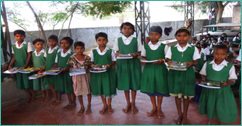 The students also engage in cultivating vegetables such as radish, papaya, brinjal, pumpkin, cowpea (jhudanga), beans, bitter gourd, and ridge gourd. The produce, grown entirely without chemicals, is consumed by both students and staff, promoting healthy eating habits. To ensure safety and enhance the environment, a wired fence was installed around the playground, and new vegetable plants were added to the school garden, fostering greenery and sustainability.
The students also engage in cultivating vegetables such as radish, papaya, brinjal, pumpkin, cowpea (jhudanga), beans, bitter gourd, and ridge gourd. The produce, grown entirely without chemicals, is consumed by both students and staff, promoting healthy eating habits. To ensure safety and enhance the environment, a wired fence was installed around the playground, and new vegetable plants were added to the school garden, fostering greenery and sustainability.
Routine health check-ups were conducted regularly, with necessary medication provided to students as required. A medical team from the Rashtriya Bal Swasthya Karyakram (RBSK) visited the campus every month to monitor the health and hygiene of the students. In addition, 200 mosquito nets were procured and distributed among the girls to promote better health and prevent mosquito-borne diseases.
Teachers also provide orientation sessions on life skills for adolescent girls, focusing on personal hygiene and self-care. Special emphasis is given to menstrual hygiene, including the proper use and safe disposal of sanitary napkins. Students are further encouraged to adopt healthy practices such as regular handwashing and maintaining cleanliness in their surroundings, fostering lifelong habits of hygiene and wellbeing.
Infrastructural Development
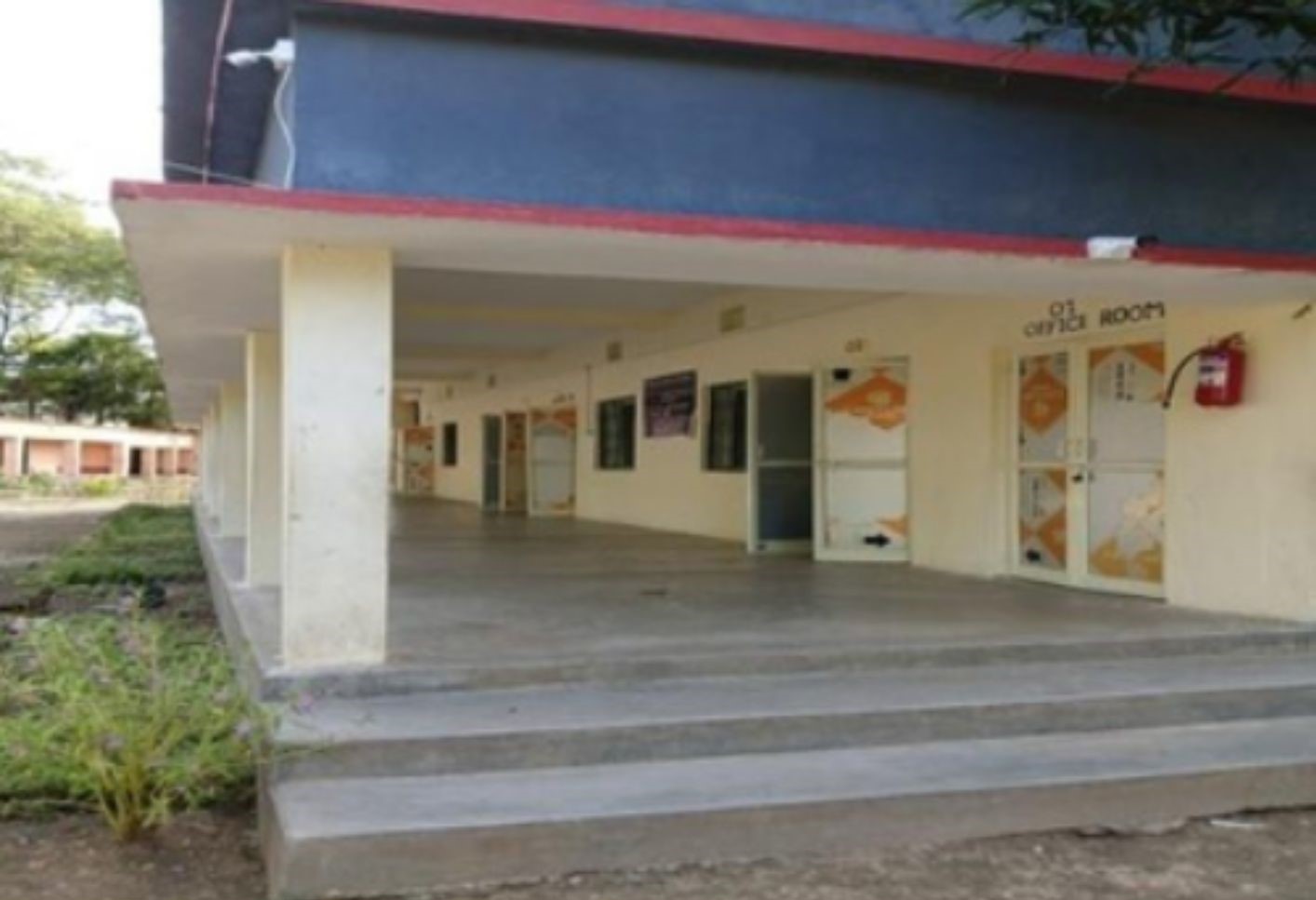 SEED launched its residential education program for tribal girls at Tandapalli village, Malkangiri district, in 1998 with an initial enrollment of 50 students. Over time, with growing awareness among parents about the importance of education and the consistent performance of the school, enrollment steadily increased and has now reached 200 students. The infrastructure, originally designed for 50 children, was gradually expanded to meet this growth. Initially, permission was granted to operate classes up to Class V, which has since been extended to Class VIII.
SEED launched its residential education program for tribal girls at Tandapalli village, Malkangiri district, in 1998 with an initial enrollment of 50 students. Over time, with growing awareness among parents about the importance of education and the consistent performance of the school, enrollment steadily increased and has now reached 200 students. The infrastructure, originally designed for 50 children, was gradually expanded to meet this growth. Initially, permission was granted to operate classes up to Class V, which has since been extended to Class VIII.
To address the evolving needs and safety of the students, SEED Kanyashram undertook significant renovation and infrastructure development during 2024–2025. Key initiatives included the construction of a new lavatory complex with 10 toilets and a birth room to strengthen sanitation facilities. Additionally, two overhead water tanks were installed to ensure a reliable and uninterrupted water supply.
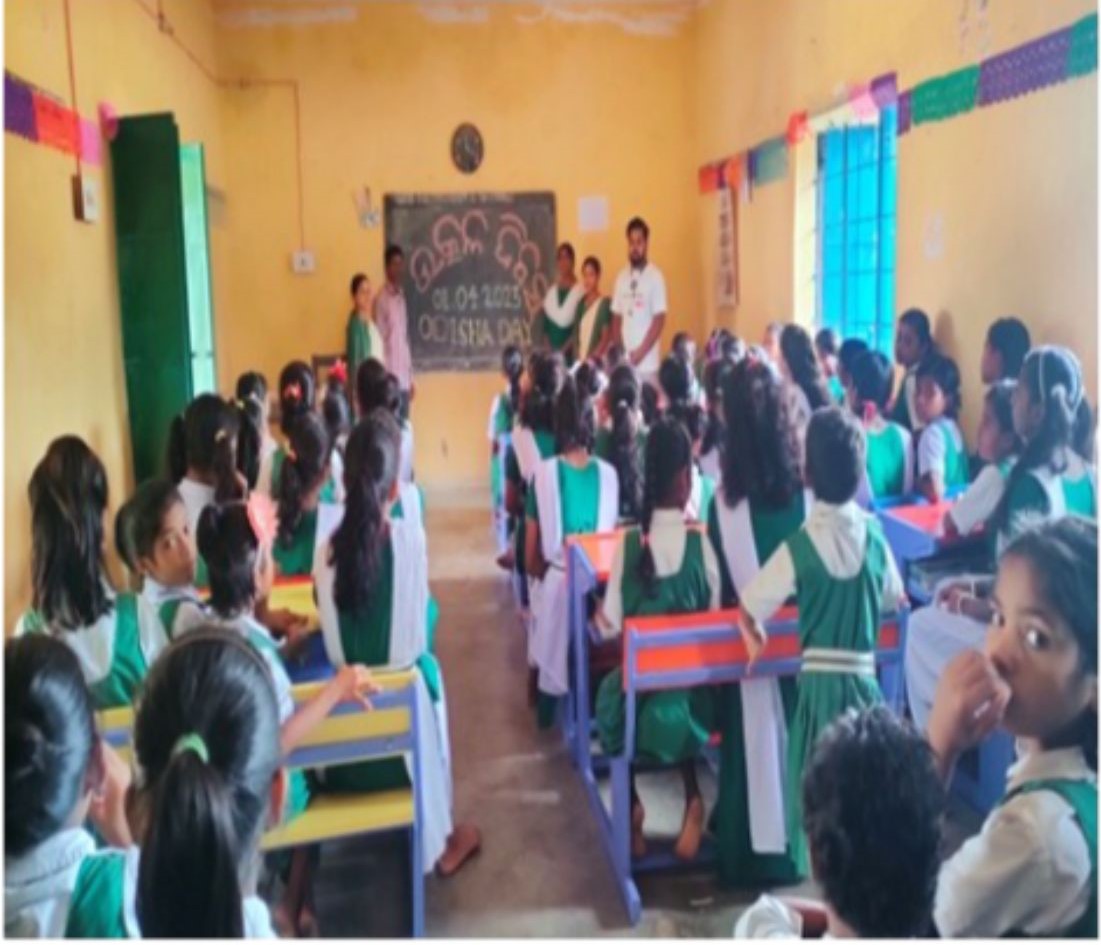 The old hostel building was renovated to provide better living conditions for students. To improve the classroom environment, five ceiling fans, 25 new desk-benches, and a large Aqua Guard water purifier were installed to ensure access to clean drinking water. For safety and surveillance, four CCTV cameras and four fire extinguishers were strategically placed across the school and hostel premises.
The old hostel building was renovated to provide better living conditions for students. To improve the classroom environment, five ceiling fans, 25 new desk-benches, and a large Aqua Guard water purifier were installed to ensure access to clean drinking water. For safety and surveillance, four CCTV cameras and four fire extinguishers were strategically placed across the school and hostel premises.
To safeguard health, asbestos sheets from the old guest house were removed, and fresh painting and renovation works were completed in both the hostel and classrooms. Further infrastructure strengthening included concrete laying along the hostel’s rear boundary on 15th April 2024 and internal wall construction in the old school building on 16th April 2024.
During 2023–24, SEED constructed a new school building and fully renovated the old hostel, converting rooms into classrooms, office space, and accommodation facilities. A solar power system was introduced to ensure sustainable energy use, while gas chulhas were installed alongside traditional wood stoves to modernize cooking practices. A new playground was laid out, and a pucca kitchen-cum-store was built within the former hostel block.
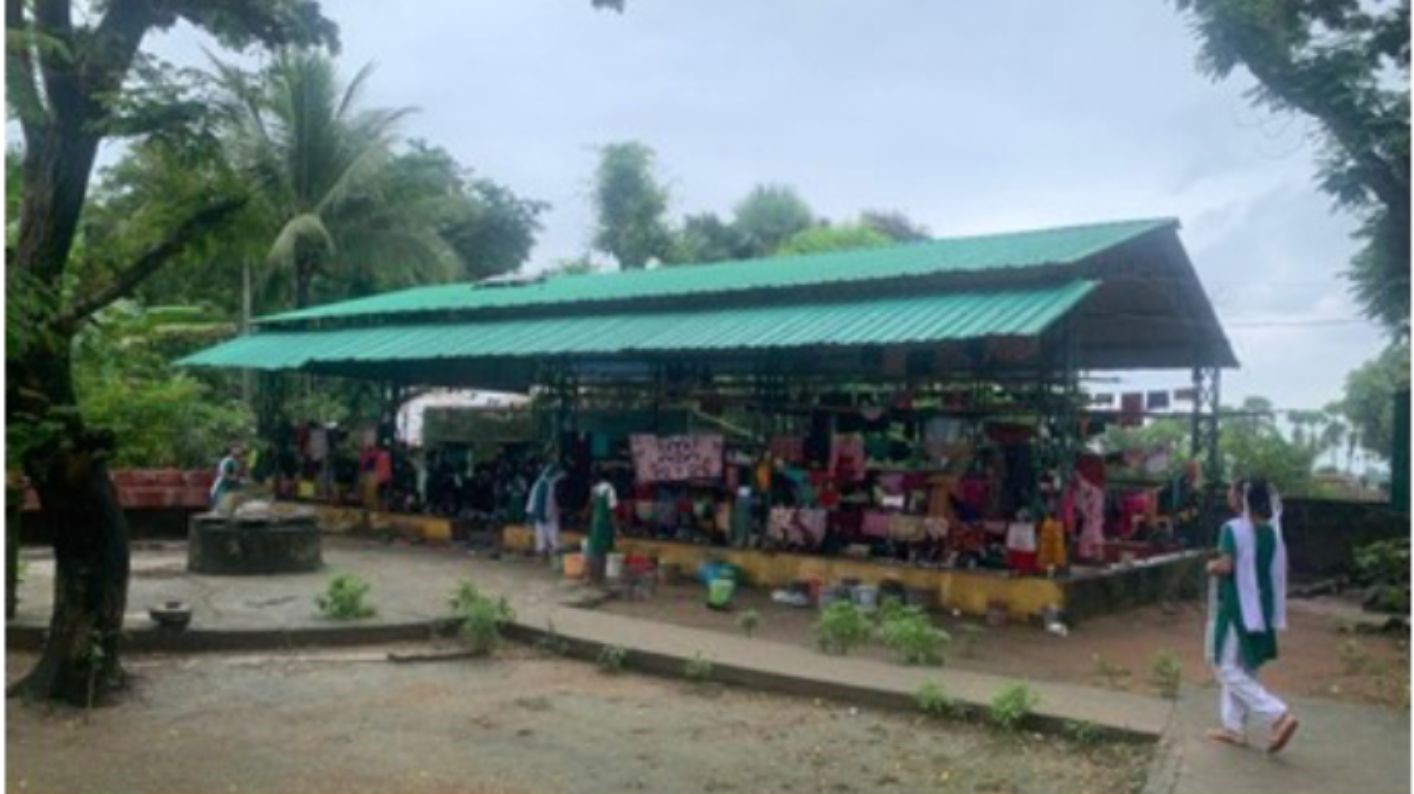 With these developments, the upgraded campus now caters to 190 tribal girls from Class I to VII, providing them with a safe, healthy, and enabling learning environment.
With these developments, the upgraded campus now caters to 190 tribal girls from Class I to VII, providing them with a safe, healthy, and enabling learning environment.
A newly constructed room with a tin sheet roof has been added near the multipurpose hall to serve as the store and kitchen for SEED Kanyashram. These facilities are now fully functional, providing a safer and more organized space for cooking and storage. The existing lavatory complex was also renovated, with new water taps and piping installed to improve sanitation.
 Additional upgrades were carried out in the hostel building to enhance safety and living conditions. A water purifier was installed to ensure safe drinking water for the students. For security, a rooftop retaining wall was constructed and painted. The solar power system was repaired, and solar lights were connected to the multipurpose room to address frequent power cuts and failures. These solar lights are now extensively used by students for evening and night study sessions outside regular school hours.
Additional upgrades were carried out in the hostel building to enhance safety and living conditions. A water purifier was installed to ensure safe drinking water for the students. For security, a rooftop retaining wall was constructed and painted. The solar power system was repaired, and solar lights were connected to the multipurpose room to address frequent power cuts and failures. These solar lights are now extensively used by students for evening and night study sessions outside regular school hours.
With these improvements, the hostel is now better equipped to accommodate 150 tribal students, offering them a safe, healthy, and supportive residential learning environment.
Prioritizing the safety and proper accommodation of its enrolled students, SEED sought to expand its infrastructure by constructing a new hostel building. To meet this essential requirement, SEED reached out to various organizations for support. The Marr Munning Trust (UK), M.A.P., David Hadida, and the Total Foundation (France) generously extended their assistance for the construction.
As a result, a 4,500 sq. ft. hostel building was completed, equipped with an RCC roof, iron doors and windows, flooring, electricity, and full painting. The new school hostel was formally inaugurated on 29th December 2015, and from January 2016 onwards, it has been serving as safe and improved accommodation for the students.
KITCHEN GARDEN ACTIVITIES
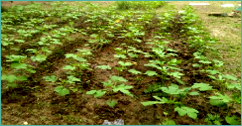 During the rainy and winter seasons, students actively participate in kitchen gardening activities, cultivating a variety of vegetables such as green leafy vegetables, brinjal, cabbage, cauliflower, chilli, tomato, and pumpkin. A lemon garden has also been developed within the campus, along with seasonal flower plantations maintained by the students. These efforts not only promote healthy eating and environmental awareness but also keep the campus clean, green, and vibrant.
During the rainy and winter seasons, students actively participate in kitchen gardening activities, cultivating a variety of vegetables such as green leafy vegetables, brinjal, cabbage, cauliflower, chilli, tomato, and pumpkin. A lemon garden has also been developed within the campus, along with seasonal flower plantations maintained by the students. These efforts not only promote healthy eating and environmental awareness but also keep the campus clean, green, and vibrant.
FISH FARMING ACTIVITIES
Fish farming is also practiced in the pond located within the campus. The harvested fish is consumed periodically, providing nutritious food for the students while also giving them exposure to sustainable livelihood practices. 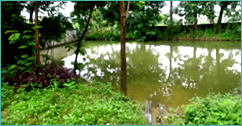
PRACTICING MEIKIRCH MODEL:
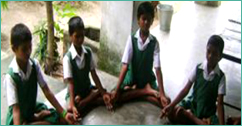 Students regularly practice yoga, physical exercises, and Socially Useful Productive Work (SUPW), all of which contribute to their overall health and wellbeing. The use of sanitary latrines, mosquito nets, and footwear has been made mandatory to ensure better hygiene and safety. In addition, students actively engage in kitchen gardening within the school premises, fostering both healthy practices and practical skills.
Students regularly practice yoga, physical exercises, and Socially Useful Productive Work (SUPW), all of which contribute to their overall health and wellbeing. The use of sanitary latrines, mosquito nets, and footwear has been made mandatory to ensure better hygiene and safety. In addition, students actively engage in kitchen gardening within the school premises, fostering both healthy practices and practical skills.
1- Peer leaders as health educators.
2- Linkages with out of school children (when the girls children going to home during holidays).
3- Health cabinets (one student elected from students as health minister) guide and inform to School authority about any student's illness etc.
EXCURSIONS AND PICNIC
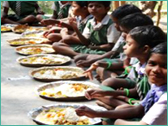 As part of SEED Kanyashram’s initiative to enrich classroom learning through real-world exposure, a week-long educational study tour was organized from 20th to 26th December 2024. The students visited important historical, cultural, and educational sites across the districts of Dhenkanal, Puri, Bhubaneswar, and Rayagada.
As part of SEED Kanyashram’s initiative to enrich classroom learning through real-world exposure, a week-long educational study tour was organized from 20th to 26th December 2024. The students visited important historical, cultural, and educational sites across the districts of Dhenkanal, Puri, Bhubaneswar, and Rayagada.
The tour commenced in Dhenkanal, where the students explored places of cultural and educational importance such as the Dattatreya Sai Temple, Kapilash, Santhasara, Joranda, Saptasajya, Kalinga Eye Hospital, and Govindpur College of Social Work and Journalism. In Puri, they visited the renowned Konark Sun Temple, Nabagraha Temple, Jagannath Temple, and enjoyed the scenic Puri Sea Beach. The journey continued to Bhubaneswar, with visits to the Lingaraj Temple, Tribal Museum, and Nandankanan Zoological Park. Finally, the tour concluded in Rayagada, where the students visited the NYSASDRI Educational Complex and gained insights into integrated rural education models.
Throughout the tour, students were guided and supervised by their teachers, with proper arrangements made for safety, discipline, and comfort. The excursion not only provided first-hand exposure to history, architecture, culture, and biodiversity but also fostered teamwork, curiosity, and social interaction among the students.
Such educational tours serve as a refreshing break from routine academic life. The experiences gained remain etched in the students’ memory, inspiring them to learn with greater enthusiasm while strengthening their understanding of India’s rich cultural and natural heritage. These real-world exposures make learning both joyful and meaningful.
GET-TOGETHER OLD STUDENT'S MEET
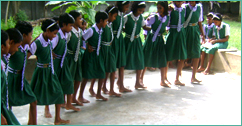 An Old Students’ Meet was organized in January 2017 at the SEED Kanyashram campus. Former students were warmly welcomed, felicitated, and honored during a cultural program, followed by a modest reception and refreshments.
An Old Students’ Meet was organized in January 2017 at the SEED Kanyashram campus. Former students were warmly welcomed, felicitated, and honored during a cultural program, followed by a modest reception and refreshments.
Since the school’s inception in 1998, many alumni have progressed to pursue higher studies in different schools and colleges. A number of tribal girls educated at SEED Kanyashram are now gainfully employed in diverse sectors, including as Integrated Child Development Scheme (ICDS) Facilitators, School Teachers, ASHA Workers, and other occupations within the district.
The success stories of these students highlight the transformative impact of SEED Kanyashram. Over the years, it has significantly contributed to changing community attitudes towards the education of tribal girls, fostering greater acceptance and encouragement for their academic and professional aspirations.








